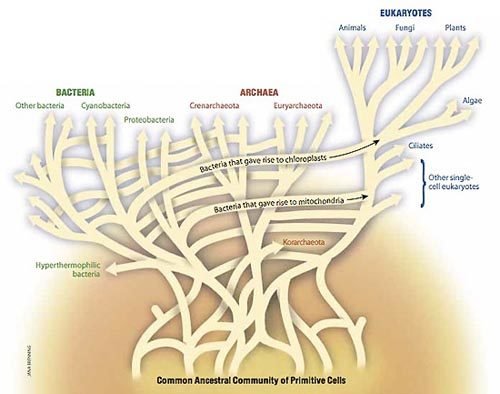Session 9: “Generation(s) in and of Struggle”
Thanks, as always, to everyone who made it to the last session of the AGAPE Seminar & Studio and to the many present-absences who shaped the session’s proceedings.
Upcoming Session Date: 28 April 2024
Start Time : 10:30 LA / 13:30 NYC / 14:30 São Paulo / 18:30 London / 19:30 Berlin / 20:30 Dar es Salaam / 23:00 Delhi
End Time: 12:30 LA / 15:30 NYC / 16:30 São Paulo / 20:30 London / 21:30 Berlin / 22:30 Dar es Salaam / 01:00 Delhi
Background Readings for the Next Session:
"The Last of the Loud" - Interview with Dhoruba bin Wahad, Philosopher of the Whirlwind, on Millenials Are Killing Capitalism
“The Honorable Harvest” from Braiding Sweetgrass Indigenous Wisdom, Scientific Knowledge and the Teachings of Plants by Robin Wall Kimmerer
“Four Autobiographical Notes” by Muindi Fanuel Muindi
Rather than romanticizing the practice of making oneself at home in the surround, we began by remarking upon the actual lives of those who are most obviously engaged in this practice: the “homeless”.
Amongst those of us who can pass for “middle class” within the imperial core and the semi-peripheries of this world, perhaps there is no greater fear that of becoming homeless, and this is no accident. The attack on homelessness — the making of homelessness into a crime or, if not a crime, a condition of shameful and persecuted destitution and pitiable charity — this is part and parcel of the Empire’s war on the surround. The violences and deprivations that Empire inflicts upon the homeless are actually supposed to be edifying: they teach us that nothing good can come of our deserting the forces of Empire, defecting to the forces of Nature, and abandoning ourselves to the surround.
The term “homeless” often conjures up specific images of unhygienic street people who are a blight upon the urban landscape. However, elsewhere in the world, homelessness has not been so easy to disentangle from ways of living that are not so squalid: squats and informally built urban and semi-urban settlements, favelas and shanty towns, which can develop into lively communities and can even link up to public infrastructures under the right social conditions. There are grey areas between being homed and being homeless, and there are degrees of homelessness. The binary between the homed and the homeless is a false one.
Indeed, the distinction between the homed and the homeless is not unlike the distinction between the enstated and the stateless.
In an earlier session, we noted that there isn’t an exclusive either/or, binary distinction between enstated citizens, on the one hand, and stateless refugees, on the other. The fully enstated citizen of the nation and the stateless refugee are extremes on a continuum: between the two extremes one finds persons who are, to varying degrees, both enstated and stateless. A person who lives in a so-called “burdened” or “failed” state is stateless to the degree that they live in a state that is “ungovernable” or “badly governed”. Similarly, racialized “others” within a given nation-state may ostensibly be enstated citizens or permanent legal residents, but they may be considered stateless to the degree that the government of the nation-state discriminates against them because of their race.
Similarly, the homed and the homeless are extremes on a continuum: between the two extremes one finds persons who are, to varying degrees, both homed and homeless. Homeless, to a degree, are inhabitants of housing projects where police officers and policy enforcers kick down doors and tear down shelters in the name of maintaining public order. Homeless, to a degree, are the subprime borrowers whose dreams of home ownership are proven to be a mirage the moment they default on their loans: like Wile E. Coyote looking down to discover that he has run over a cliff and that there is no ground beneath his feet.
Recognizing this, our conversation revolved around recognizing the degree to which we ourselves may be homeless and embracing our homelessness as a way of making ourselves increasingly more and more at home in the surround. In other words, rather than allowing our awareness of the degree of our own homelessness to drive us to secure more and more comforts of home apart from the surround for ourselves (this being the mentality of those who colonize and settle), we asked ourselves whether we might use our awareness of our homelessness to drive us to make ourselves more at home in the surround (this being the mentality of those who participate in marronage). Indeed, with this insight, we stumbled upon a new definition of a Maroon Infrastructure: an infrastructure that disables toxic practices of securing one’s home from the surround and enables tonic practices of making oneself at home in the surround.
For many of us, the topic of home brought to mind the topic of family and intergenerational living: our first experiences of home being our experiences as children at home with parents, grandparents, and other caregivers — the experience of being surrounded by family, the experience of security or insecurity within a family home. Considering this, we recognized that, in curious and troubling ways, we have spent much of our time talking about our ethical and political responsibilities as if they were timely individual ones and not bound with those of others who are not of our own time: our elders and our juniors, our dead ancestors and our yet-to-be-born descendants.
At this next session, I would like for each of us to situate ourselves and our upbringings in this particular world, to think about how we are marked by them and how they shape our comings together. To this end, I offer you my own reflections on my upbringing as one such background alongside those of some of philosophical and political inspirations, Dhoruba Bin Wahad and Robert Wall Kimmerer.
